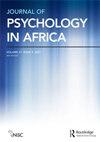College students’ aesthetic affection and prosocial behaviour: The role of empathy
IF 0.8
4区 心理学
Q3 PSYCHOLOGY, MULTIDISCIPLINARY
引用次数: 0
Abstract
Two studies were conducted to explore the influence of college students’ aesthetic affection on prosocial behaviour and the role of empathy. In Study 1, 343 college students completed the Chinese College Students Aesthetic Affection Questionnaire (CCSAAQ), the Interpersonal Reactivity Index (IRI-C), and the Measure of Prosocial Tendencies (PTM-C). The results showed that students with higher aesthetic affection and trait empathy also had higher prosocial behaviour. Trait empathy partially mediated the relationship between aesthetic affection and prosocial behaviour. More specifically, aesthetic affection can directly promote prosocial behaviour and can indirectly promote prosocial behaviour through trait empathy. In Study 2, 121 students completed a behavioural “Dictator Game” experiment (two factors between-subject design) with manipulation of aesthetic affection (high group/low group) and state empathy (induction group/control group) to investigate effects on helping behaviour. The results suggested that induction state empathy and high aesthetic affection can lead to more helping behaviour (donation amount) and that state empathy can promote the helping behaviour of college students with low aesthetic affection. Based these findings, we conclude that empathy plays an important role in strengthening the relationship between aesthetic affection and prosocial behaviour.大学生的审美情感与亲社会行为:移情的作用
两项研究旨在探讨大学生的审美情感对亲社会行为的影响以及移情的作用。在研究1中,343名大学生完成了中国大学生审美情感问卷(CCSAAQ)、人际反应指数(IRI-C)和亲社会倾向测量(PTM-C)。结果表明,具有较高审美情感和特质移情的学生也具有较高的亲社会行为。特质移情在一定程度上介导了审美情感与亲社会行为之间的关系。更具体地说,审美情感可以直接促进亲社会行为,也可以通过特质移情间接促进亲社会行动。在研究2中,121名学生完成了一项行为“独裁者游戏”实验(受试者设计之间的两个因素),包括审美情感的操纵(高组/低组)和状态移情(诱导组/对照组),以调查对帮助行为的影响。结果表明,诱导状态移情和高审美情感可以导致更多的帮助行为(捐赠金额),而状态移情可以促进低审美情感大学生的帮助行为。基于这些发现,我们得出结论,移情在加强审美情感和亲社会行为之间的关系方面发挥着重要作用。
本文章由计算机程序翻译,如有差异,请以英文原文为准。
求助全文
约1分钟内获得全文
求助全文
来源期刊

Journal of Psychology in Africa
PSYCHOLOGY, MULTIDISCIPLINARY-
CiteScore
1.70
自引率
16.70%
发文量
62
期刊介绍:
Findings from psychological research in Africa and related regions needs a forum for better dissemination and utilisation in the context of development. Special emphasis is placed on the consideration of African, African-American, Asian, Caribbean, and Hispanic-Latino realities and problems. Contributions should attempt a synthesis of emic and etic methodologies and applications. The Journal of Psychology in Africa includes original articles, review articles, book reviews, commentaries, special issues, case analyses, reports and announcements.
 求助内容:
求助内容: 应助结果提醒方式:
应助结果提醒方式:


